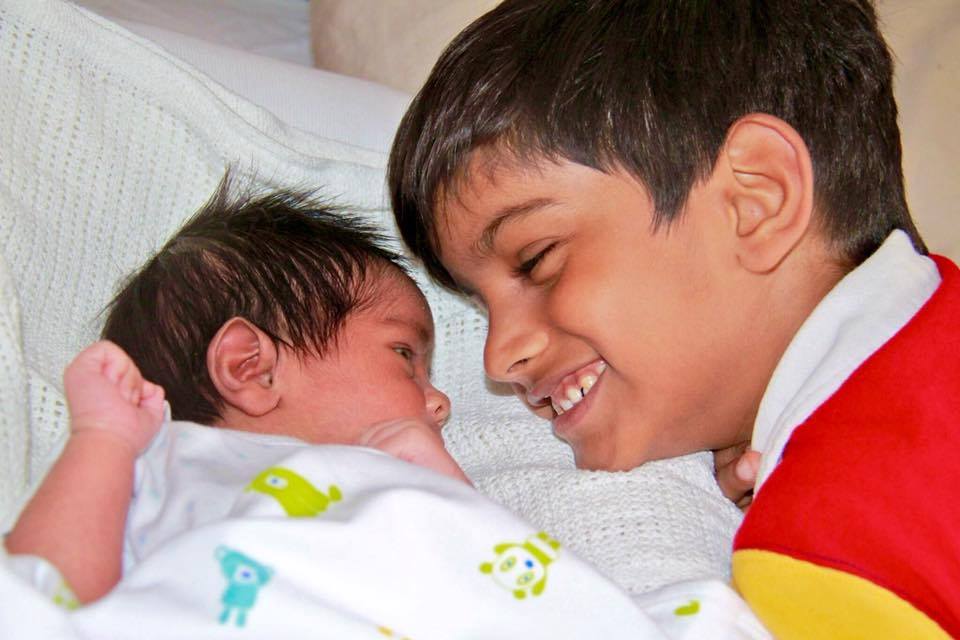
As a parent, one often has to answer hard questions. For me, some of the most difficult questions have come from my seven-year-old son over the past few weeks. We have had a summer full of shocking events. Violence in France, Germany, and Turkey has put terrorism back in the headlines. It is hard to protect my son from the horrors of the flickering television reports. My young boy has seen the news and inevitably asked me: “why are people mad at each other?”
The truth is complicated and hard to explain. My son has grown up in the safety here in London so he has a hard time understanding violence and extremism. His childhood is a million miles away from my upbringing in Sri Lanka, amid a civil war, where it was easy to see first-hand how ordinary people can turn to extreme actions.
When I look at the world today and see how terrorists are getting bolder, more desperate, and more willing to do the unthinkable, my childhood in Sri Lanka haunts me. During the country’s long civil war I saw many friends — children — become radicalised by separatist groups like the Liberation Tigers of Tamil Eelam (LTTE). They were young men who were willing to give their lives for the cause. Many joined the ranks of the LTTE because they felt life in the military gave them a purpose in their life. Others did it for revenge. Their families had been victims of constant government attacks and violence was their way of taking back control.
I was the same age as my son when the infamous anti-Tamil pogrom known as Black July (1983, https://en.wikipedia.org/wiki/Black_July) saw Sri Lanka descend into conflict. The violent events, which had their 33rd anniversary this month, began when an LTTE ambush saw 13 Sri Lankan Army soldiers killed in Thirunelvely, Jaffna. This attack was retaliation for the abduction and rape of some Tamil school girls by the government forces. Sri Lankan government soldiers responded to the ambush by killing 51 civilians in Jaffna. Over the next seven days, Sinhalese extremists retaliated, burning, looting and killing many innocent Tamils, first in Colombo and then throughout the country. They were not the majority. There were a great many in the Sinhalese community who sought to shelter and protect their Tamil neighbours. Sadly, despite their best efforts, around 3,000 Tamils lost their lives. A war ensued, and some fled, but many young Tamil students chose a suicide vest over education.
It was a cycle. Every violent action was met with an equally violent reaction. Hate was breeding hate as warring factions tried to get the upper hand. I saw families and communities torn apart; I saw radicalised young boys murder their fathers when given instruction. No-one was in control. That was the world I knew and the world that shaped me. Today I look at my son, and I wonder to myself: “How is the world going to shape my little boy”?
Thankfully, the flickering TV screen separates my son from the violence, but he is seeing the same cycle today. Extreme views are taking hold. Economic crises, racial division and war have left people feeling unable to take control. Religious extremists have preyed on this and recruited young men to do the unthinkable. Meanwhile, Western governments have reacted by turning to the politics of fear. People have turned against outsiders, and extreme views become mainstream.
How does a father explain all this to his 7-year-old boy? How can a child see hope when there is so much extremism? When I ask myself this question I think about my father. My dad taught me that everyone has a choice, that even when you feel completely powerless, you still have the power to make the right decisions. Even in the midst of war my father made sure I had a chance to an education. Even when my school was pockmarked with bullets and surrounded by craters, there was hope. The path to extremism was there for me. After I had lost my brother in government crossfire, I felt the anger and desperation that drives so many to violence, but it did not consume me. Instead, I looked for a positive change in my life and converted all the negativity to fuel my life.
Before I left Sri Lanka my father told me to be like a tree. When I asked him what this meant he said as a sapling people may urinate on you but should not lose faith. Instead, keep pushing your roots into the fertile soil. When you are big and strong, people will come to you for shelter from the storm. He taught me how to turn hardship into strength. He taught me patience. This is the lesson I want to teach my son.

























